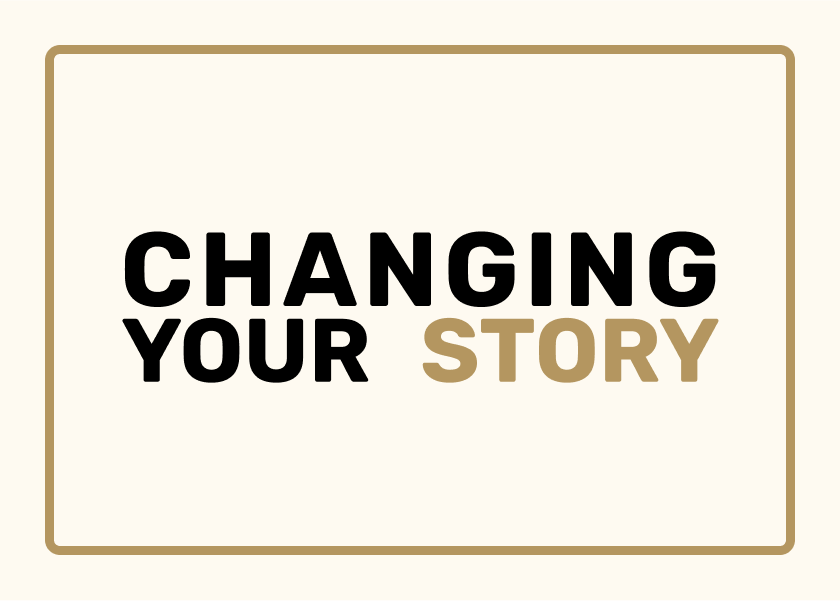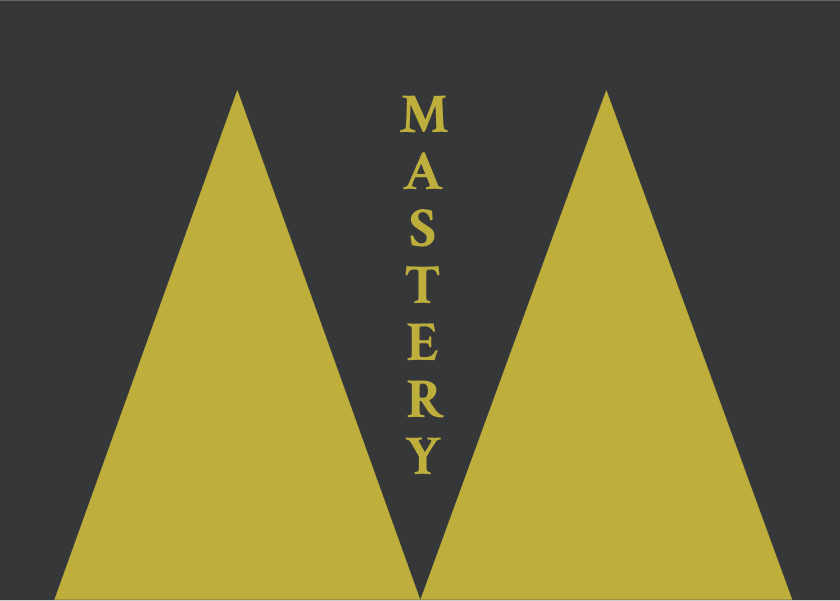Changing Your Story by Bill Beswick - Summary
Rewrite your life story! Discover 20 powerful lessons from elite sport psychology. Take control, build a winner's mindset, and conquer any challenge. Start your transformation now!

The following is a summary and review of the book Changing Your Story by Bill Beswick.
20 Life Lessons Drawn from Elite Sport
Feeling stuck in your current narrative? Wondering if you could be achieving more, living a more fulfilling life? Bill Beswick’s Changing Your Story: 20 Life Lessons Drawn from Elite Sport offers a powerful and insightful guide to taking control of your mindset and shaping a more successful future. Beswick, a renowned applied performance psychologist who has worked with top athletes and teams across various sports, distils his extensive experience into 20 accessible and inspiring lessons. This book is a treasure trove of practical wisdom gleaned from the high-pressure world of elite sport, offering valuable strategies that can be applied to all aspects of life.
Table of Contents
- About the Author
- Who Should Read This Book?
- Key Insights and Themes
- Detailed Summary
- Review
- Actionable Takeaways
- FAQs
- Conclusion
About the Author
Bill Beswick is an applied performance psychologist with a distinguished career specialising in working with elite teams. His impressive track record includes a gold medal win coaching the England basketball team in the Commonwealth Championships. Notably, Bill became the first performance psychologist operating fully in professional football, collaborating with eight Premier and English Championship League teams, including Manchester United, as well as FC Twente in the Dutch Eredivisie. He holds the unique distinction of having worked with English national teams (men and women) across three major team sports: basketball, football, and rugby. Furthermore, Bill has taught mental preparation skills to GB swimming, contributing to their successful Rio Olympic programme. His extensive experience at the pinnacle of sport lends significant credibility to the lessons shared in Changing Your Story.
Who Should Read This Book?
Changing Your Story is a valuable read for anyone seeking to improve their mental resilience, achieve their goals, and lead a more fulfilling life. While the lessons are drawn from the world of elite sport, their application extends far beyond the arena. This book is particularly beneficial for:
- Individuals facing challenges or setbacks in their personal or professional lives who want to develop a more positive and proactive mindset.
- Those striving for high performance in any field, whether it's business, education, the arts, or personal development.
- Coaches, managers, and leaders looking for insights into motivating and developing individuals and teams.
- Anyone interested in the power of psychology and how mindset can significantly impact outcomes.
- Those feeling stuck or overwhelmed and seeking practical strategies to regain control and direction in their lives.
Essentially, if you have a desire to take ownership of your narrative and strive for a better version of yourself, this book offers valuable guidance and inspiration.
Key Insights and Themes
The book is structured around 20 key lessons, each offering a unique perspective on cultivating a winning mindset. Here are the main ideas explored:
- Take Responsibility: Own your situation and actions.
- Find Your Reason Why: Identify your core motivations and purpose.
- Change Your Story: Reframe negative narratives into positive opportunities.
- Set No Limits: Believe in your potential and challenge self-imposed restrictions.
- Performance Follows Attitude: Cultivate a positive and proactive mindset.
- The Competition Is You: Overcome your inner critic and self-doubt.
- Stay Positive: Be your own cheerleader and use empowering self-talk.
- Raise Your Bottom Line: Aim for consistent mastery rather than unattainable perfection.
- Success Is a Series of Small Steps: Break down large goals into manageable actions.
- Define the Moment: Take control in critical situations instead of being defined by them.
- Focus on the Process: Concentrate on daily preparation and let the results follow.
- Self-Control Is the Key: Manage your emotions to ensure effective behaviour.
- Defeat Your Anxiety: Embrace challenges rather than succumbing to fear.
- Refuse to Be a Victim: Develop resilience and learn from setbacks.
- Build a Support Team: Leverage the strength and belief of others.
- Control Your Bandwidth: Prioritise what truly matters to avoid feeling overwhelmed.
- Do the Right Thing: Act with integrity and be accountable for your actions.
- Control the Controllables: Focus your energy on aspects you can influence and play to your strengths.
- Model Your Behaviour: Learn from successful role models and emulate their positive traits.
- Keep a Journal: Reflect on your experiences, release fears, and track your progress.
Detailed Summary
Here is a more detailed breakdown of the 20 lessons:
1. Take Responsibility – Cross the Line
Beswick emphasises the crucial first step of taking ownership of your situation and your responses. He shares his experience of noticing players blaming others for poor performance and highlights the importance of Bill Belichick's definition of responsibility: doing what you're supposed to do, when you're supposed to do it. The story of George, a talented player who transformed his career by taking responsibility for his lifestyle, illustrates this lesson effectively.
2. Find Your Reason Why – and Choose an ‘A’ Grade Life
This lesson focuses on the power of motivation and purpose. The anecdote about Darren, a "warrior-athlete" driven by continuous improvement, highlights the importance of a strong "why". Beswick encourages readers to define what they want, how badly they want it, and what they are willing to sacrifice to achieve it. He also introduces the concept of choosing an "A" grade life by maximising your potential and seizing opportunities.
3. Change Your Story – Learn to Be a Winner
This chapter explores the impact of our internal narratives. The powerful story of college soccer coach James, who reframed a seemingly disastrous situation into an opportunity, demonstrates the transformative power of changing your perspective. Beswick advocates for taking a "mental time-out" to reframe challenges and adopt a "fighter mentality" over a "victim mentality".
4. Set No Limits – Believe in Yourself
This lesson delves into the power of self-belief and overcoming self-imposed limitations. The story of tennis player Harry, whose performance was negatively affected by his opponent's ranking, illustrates the concept of a self-fulfilling prophecy. Beswick outlines a four-step programme to stretch self-imposed limits: reviewing achievements, creating a "picture of perfection", finding a "belief partner", and adopting a "What's next?" attitude, exemplified by swimmer Adam Peaty.
5. Performance Follows Attitude – Have You Checked Your Attitude Today?
This chapter underscores the critical role of attitude in achieving success. The inspiring story of young footballer Yasmin, who overcame a lack of technical ability with sheer determination and a winning attitude, highlights this point. Beswick argues that while talent is important, a positive attitude is often the deciding factor and can be improved at any time. The case of footballer Chris, who turned his performance around by shifting his negative attitude, further reinforces this lesson.
6. The Competition Is You – Get Out of Your Own Way
This lesson focuses on overcoming internal obstacles and self-doubt. The balance beam exercise illustrates how fear and negative thinking can prevent individuals from reaching their potential. The story of netball player Katie, who was plagued by an "internal critic", demonstrates how identifying and challenging negative self-talk can lead to improved performance and enjoyment. Beswick introduces the concept of a "trigger card" to switch from negative to positive thoughts.
7. Stay Positive – Be Your Own Cheerleader
This chapter emphasises the importance of positive self-talk and managing negative emotions. The example of rugby player Jeff, who transformed his anxiety by reframing "stressed" as "blessed", showcases the power of language and positive affirmations. Beswick encourages readers to become aware of their negative triggers and consciously choose empowering and energising self-talk.
8. Raise Your Bottom Line – Aim for Mastery, Not Perfection
This lesson addresses the dangers of perfectionism and advocates for striving for consistent improvement. The story of footballer Emma, who was crippled by her fear of making mistakes, illustrates the negative impact of an unrelenting pursuit of perfection. Beswick introduces the idea of "raising the bottom line" by focusing on improving your worst performance rather than chasing an unattainable perfect performance. The anecdote of basketball player Jim Guymon highlights the importance of resilience and a healthy perspective on mistakes. Beswick introduces the concept of "mastery" – an intense desire to achieve while accepting imperfections.
9. Success Is a Series of Small Steps – Build a Tick Stepladder
This chapter highlights the effectiveness of breaking down large goals into smaller, manageable actions. The transformation of footballer Evan, who overcame his poor habits by focusing on one small, achievable behaviour change each day, demonstrates this principle. Beswick introduces the "tick stepladder" concept, where small successes build confidence and momentum. He also references Admiral William H. McRaven's idea that "little things matter". The example of young basketball player Jenny, whose mother learned to allow her to take small steps towards independence, further illustrates this lesson.
10. Define the Moment – Or the Moment Will Define You
This lesson emphasises the importance of taking control in critical situations. Beswick shares his experience coaching the England basketball team and the pivotal moment in the Commonwealth Championships semi-final, where different players reacted differently under pressure. The story of Brian, who "choked" under pressure, and the captain and Tony, who seized the moment, highlights the importance of mental strength in defining crucial moments. Beswick stresses that occasional failure is the price of accepting the challenge and encourages readers to define situations rather than being defined by them.
11. Focus on the Process – Let the Wins Come to You
This chapter advocates for concentrating on the daily preparation and actions rather than solely on the outcome. The interview with the Olympic gold medallist who emphasised her daily training over chasing medals serves as a powerful example. The case of young swimmer Steve, who lost focus by obsessing over winning, illustrates the dangers of neglecting the process. Beswick shares his experiences at Manchester United, where the focus was on hard work and preparation, allowing the enjoyment of game day. He encourages readers to "park" their goals and focus on daily actions. The example of the Football League team that achieved promotion by focusing on the quality of each practice session further reinforces this lesson.
12. Self-Control Is the Key – Don’t Be Captive to Your Emotions
This lesson highlights the importance of managing emotions for optimal performance. Novak Djokovic's response to being asked to play without his cap demonstrates emotional control in a challenging situation. The example of golfer Ben, who learned to manage his negative emotions in the second half of a round, illustrates practical strategies for emotional regulation. Beswick introduces the HATED acronym (Hungry, Angry, Tired, Emotional, Dehydrated) as a checklist for underlying conditions that can affect emotional control. He also shares the "traffic lights" strategy used with a football team facing potential racist abuse, where "green" represents control, "red" represents loss of control, and "amber" is a warning sign.
13. Defeat Your Anxiety – Embrace the Challenge
This chapter explores how to reframe anxiety and fear into a motivating force. Beswick asks whether individuals see competition as a threat or a challenge. The story of Paul, who overcame his anxiety about performing in front of a crowd by interacting with the spectators, demonstrates the power of changing interpretation. Beswick advises checking the evidence and remembering that feelings are not facts. He uses the film "A League of Their Own" to illustrate how embracing the difficulty can lead to greatness. He introduces the SOCS framework (Situation, Options, Consequences, Solution) for managing fearful situations.
14. Refuse to Be a Victim – Develop Resilience from Setbacks
This lesson focuses on bouncing back from difficulties and learning from failures. Beswick recounts his advice to basketball captain Paul Stimpson to lead by example after a defeat. The story of rugby player Chris, who recovered from a broken leg with the support of his wife and a structured recovery plan, highlights the importance of acceptance, reframing, and focusing on the future. The example of footballer Tom, who reacted badly to being dropped but then adopted a "fighter mentality" by modelling his behaviour on Ole Gunnar Solskjaer, further illustrates this lesson. Beswick emphasises that setbacks should not be seen as personal or permanent.
15. Build a Support Team – Feed Off the Strength of Others
This chapter underscores the importance of surrounding yourself with supportive and positive people. The example of the University of Florida basketball team's concept of "FAMILY" illustrates the power of mutual support. Beswick shares his work with a struggling football team, where fostering a sense of being needed, cared for, listened to, and appreciated among the players led to improved morale and performance. He introduces the concept of "belief partners" who constantly inject confidence. Beswick stresses the value of communication in decreasing anxiety and encourages readers to nurture their relationships.
16. Control Your Bandwidth – Prioritize What Counts
This lesson addresses the challenge of feeling overwhelmed and advocates for effective prioritisation. Melissa's analogy of spinning plates illustrates the feeling of having too many demands. Beswick explains the concept of personal bandwidth and the need to focus energy on the main areas that matter. He differentiates between a marathon and a series of sprints, highlighting the importance of recovery. The example of Brad, who regained control by setting boundaries and prioritising his non-negotiable goals, further illustrates this lesson. Beswick quotes Steve Jobs on the importance of focus and simplicity.
17. Do the Right Thing – and Be Accountable for Your Actions
This chapter emphasises the importance of integrity and taking responsibility for one's behaviour. Beswick shares his suggestion to a football manager to have one key guideline: players should "do the right thing". The story of Billy, who coached an inner-city junior wrestling club and taught discipline by insisting on specific pre-training actions, illustrates how to instil good habits. The example of a European football club that shifted its youth academy policy to emphasise responsibilities before entitlements highlights the importance of accountability. Beswick notes that consistently doing the right thing in small, day-to-day elements builds habits for critical situations. He includes a quote attributed to Abraham Lincoln on the feeling of doing good versus doing bad.
18. Control the Controllables – Play to Your Strengths
This lesson focuses on directing energy towards aspects you can influence and leveraging your inherent abilities. Beswick shares how learning this principle helped him manage his own emotional reactions. The story of basketball player Jake, who was selected for the team based on his attitude and teamship despite not being the most technically gifted, illustrates the power of focusing on controllables. The example of basketball player Michael, who struggled due to focusing on the judgement of others, highlights the importance of emotional detachment. Beswick notes Harvard University's shift in admissions policy to value character and attitude equally with talent. He also references Michael Phelps's dedication to hard work as a key controllable factor.
19. Model Your Behaviour – Act Like Your Hero
This chapter advocates for learning from successful role models and imitating their positive behaviours. Beswick recounts how Steve McClaren, then manager of Middlesbrough FC, modelled his behaviour on Sir Alex Ferguson to handle a challenging press conference. The arrival of a professional senior player who set high standards influenced the behaviour of young players at another football club. The story of goalkeeper Andy, who overcame his reluctance to claim crosses by modelling his behaviour on Peter Schmeichel, demonstrates the effectiveness of this approach. Beswick encourages readers to ask themselves what their "hero" would do in challenging situations.
20. Keep a Journal – Release Your Fears and Move On
This lesson highlights the benefits of reflective journaling for managing thoughts and emotions. The story of football manager Bruno, who kept journals throughout his career after Beswick introduced him to the practice as a young player, illustrates its long-term value. Beswick suggests answering four key questions in a journal: what went wrong, how to change it, what went well, and how to improve. He emphasises the importance of challenging negative perceptions and acknowledging progress. Inviting an assistant coach to share his positive views on Bruno boosted the young player's confidence. Beswick notes that a negative frame of mind can blind us to progress. He concludes by highlighting that keeping a journal can be a life-changing activity, especially when combined with feedback from a trusted friend or mentor.
Review
Changing Your Story is a highly practical and inspiring book that draws compelling parallels between the demands of elite sport and the challenges of everyday life. Bill Beswick's extensive experience and the numerous real-world anecdotes make the lessons relatable and impactful. The book's strength lies in its clear structure, with each of the 20 lessons presented concisely and supported by illustrative stories and actionable "PUT IT INTO ACTION" sections. Beswick's writing style is accessible and engaging, making complex psychological concepts easy to understand.
However, some readers might find the heavy reliance on sporting examples less engaging if they have no interest in sports. While the principles are universally applicable, the context might not resonate with everyone. Additionally, while the book offers a broad range of valuable insights, some topics might benefit from more in-depth exploration.
Overall, Changing Your Story offers a valuable toolkit for anyone looking to enhance their mental strength, take control of their life narrative, and achieve their full potential. It is a testament to the power of mindset and provides practical strategies for cultivating a winning attitude.
Actionable Takeaways
Here’s how to apply these lessons in real life:
- Identify one area where you are currently blaming external factors and consciously choose to take responsibility for your role in the situation.
- Spend some time reflecting on your core values and motivations. Define your "reason why" for pursuing your goals.
- When faced with a setback, actively try to reframe the situation and identify potential opportunities for growth.
- Challenge a limiting belief you hold about yourself. List your past successes to build evidence against this belief.
- Pay attention to your attitude throughout the day. If you find yourself being negative, consciously choose to adopt a more positive outlook.
- Become aware of your inner critic. Start to challenge negative self-talk and replace it with more positive affirmations.
- Identify a negative word you frequently use about yourself and consciously replace it with a more empowering alternative.
- Instead of striving for perfection in a particular area, focus on consistently achieving a good standard. Identify your "bottom line" and aim to raise it.
- Break down a large goal into a series of smaller, manageable steps. Celebrate each small success along the way.
- In a challenging situation, take a moment to assess what you can control and focus your energy there.
- Concentrate on the daily processes and habits that will lead to your goals, rather than solely focusing on the desired outcome.
- When you feel your emotions rising, use a simple trigger (like the "traffic lights" strategy) to regain control.
- The next time you feel anxious about a challenge, try to reframe it as an opportunity for growth rather than a threat.
- When you experience a setback, allow yourself to feel the emotions, but then actively shift your focus towards learning and recovery.
- Identify the key people in your support network and make an effort to connect with them regularly.
- Assess your current commitments and identify areas where you might be overstretched. Learn to say no to non-essential tasks.
- Before making a decision, pause and ask yourself, "What is the right thing to do?".
- Identify your key strengths and look for opportunities to leverage them. Minimise focusing on weaknesses you cannot easily change.
- Think of someone you admire who has achieved something you are striving for. In a challenging moment, ask yourself, "What would they do?".
- Start keeping a journal to reflect on your experiences, both positive and negative, and identify areas for growth.
FAQs
- What is "Changing Your Story" about? "Changing Your Story" distils Bill Beswick's decades of experience as a performance psychologist working with elite athletes into 20 practical life lessons. It focuses on the power of mindset, taking control of your thoughts and behaviours, and shaping a more successful and fulfilling life.
- Who is Bill Beswick? Bill Beswick is an applied performance psychologist who has worked extensively with elite teams and athletes across various sports, including football (Manchester United), basketball (England National Team), rugby, and swimming (GB Swimming). He is considered a pioneer in the field of sport psychology in professional football.
- What are the key lessons in "Changing Your Story"? The book covers 20 key lessons, focusing on themes such as taking responsibility, finding your purpose, reframing negative narratives, building self-belief, cultivating a positive attitude, managing emotions, learning from setbacks, and the importance of focus and perseverance.
- Is "Changing Your Story" worth reading? Yes, "Changing Your Story" is a worthwhile read for anyone interested in improving their mental resilience and achieving their goals. It offers practical, actionable advice supported by real-world examples from the world of elite sport, making the principles relatable and impactful for various aspects of life.
- How can "Changing Your Story" help me? This book can help you by providing strategies to:
- Develop a stronger and more positive mindset.
- Take greater control of your actions and responses to challenges.
- Overcome self-doubt and limiting beliefs.
- Learn from setbacks and build resilience.
- Focus your energy on what truly matters.
- Cultivate habits that lead to success.
- Improve your overall well-being and sense of purpose.
Conclusion
Bill Beswick's Changing Your Story offers a compelling roadmap for taking control of your life's narrative. By drawing insightful parallels between the mindset of elite athletes and the challenges we all face, Beswick provides practical and inspiring lessons for cultivating mental strength, resilience, and a winning attitude. Whether you are striving for peak performance in your career, navigating personal challenges, or simply seeking a more fulfilling life, the principles outlined in this book offer valuable guidance. Don't let your story own you – take control and begin writing your own success.
As an Amazon Associate, ShelfHelp may earn money from qualifying purchases. Needless to say, ShelfHelp only includes affiliate links to books we recommend and think are worth your time reading.




